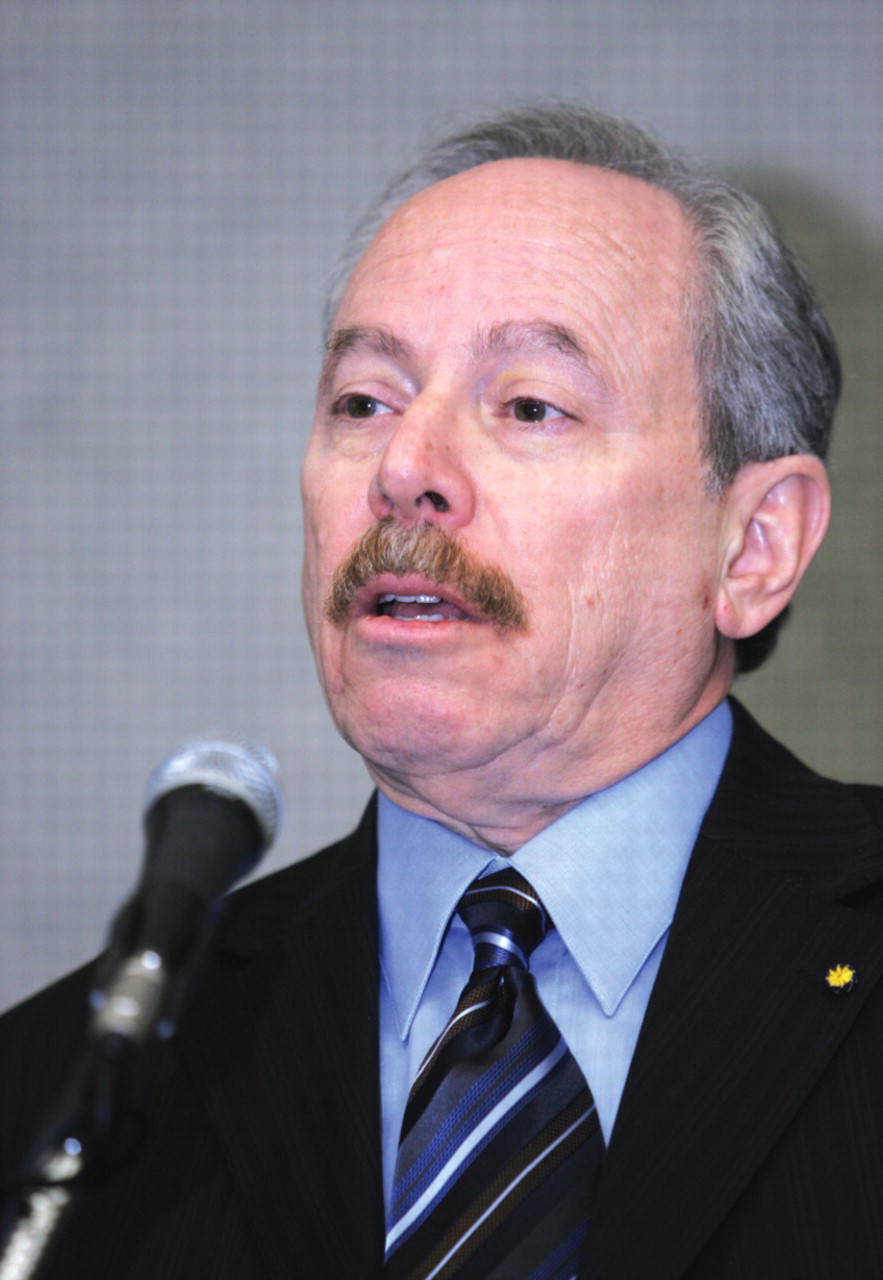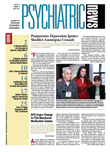Scientists and clinicians concerned about the welfare of the scientific endeavor need to engage in a new way with the American public to reverse a deteriorating relationship between society and science.
That's what Alan Leshner, Ph.D., chief executive officer of the American Association for the Advancement of Science and executive publisher of the prestigious journal Science, told psychiatrists at APA's 2007 annual meeting in San Diego in May.
Leshner said that tension between the scientific community and the larger American society—around issues as diverse as global warming, stem cell research, the teaching of evolution in schools, and treatment of addictive and mental disorders—is as bad as it has ever been.
“We have never experienced a period of quite as much tension as now exists between science and society,” Leshner said. “The overall relationship is beginning to erode with consequences for the way science can do its job and prosper.
“I have been interested all of my professional life in the relationship between science and society because I believe it overlays any ability the scientific enterprise has to contribute to the betterment of human-kind,” he said.
Leshner, who was formerly director of the National Institute on Drug Abuse, noted that public policies around reimbursement for treatment of mental and addictive disorders depends, for instance, on the way the public perceives those issues.
“Without a credible science base, there will never be appropriate reimbursement,” he said. “Not only does the science base matter, but the relationship between science and society is critical to the way in which science is perceived and the way scientific findings are used. And neuroscience is not immune.
“On the one hand, we are living in the best of scientific times,” he said. “Advances are coming at a tremendous pace. The ability to sequence the genome has produced advances in our own field, and the ability to look into the brain and watch the brain in action is responsible for quantum jumps in understanding mental and addictive disorders. On the other hand, other issues within science are not going well and are eroding the relationship with society.”
He cited episodes of scientific misconduct and ongoing problems with conflict of interest as especially damaging. “I can't underestimate the consequences of these incidents,” he said. “In the aggregate they are very damaging to the way the rest of the world sees what we do.”
Leshner said the 2005 scandal surrounding Hwang Woo Suk, a South Korean stem cell researcher, was particularly damaging. It was Science that had published his May 2005 paper on cell cultures tailor-made from embryonic stem cells and later retracted it when the cell cultures were found not to exist.
“Conflict of interest problems have come up again and again, among a very small proportion of the scientific community, but the problems are spreading and having contextual effects that are very damaging in terms of our credibility to the rest of our fellow citizens,” Leshner said.
Public Misunderstands Science Limits
Outside of science there are enormous problems in terms of scientific literacy and public understanding about the nature of science and its limitations.
Leshner said that though science consistently rates high in public-approval polls, many people have an uncertain understanding—at best—of what science is and is not. He noted that 60 percent of Americans believe in extrasensory perception, 40 percent believe astrology is a science, and 47 percent do not believe that humans evolved from lower species.
He also cited statistics showing that 56 percent of the public believe that scientific research does not pay attention to moral values, and 50 percent say there is too much dependence on science and not enough on“ faith.”
Leshner said he believes the public needs a more thorough understanding, not of the details of scientific discoveries, but of the nature and limits of science—especially that scientific explanations are limited to the explanations of the natural world.
This is relevant, he said, in discussions about the teaching of“ intelligent design”—which he compared to alchemy, astrology, and other pseudo-sciences posing as alternatives to legitimate science—as an alternative to evolution.
“We argue that science is restricted to the natural world,” he said. “Intelligent design posits a supernatural designer—but science cannot answer that question, it can't pose the question, it isn't subject to scientific scrutiny. So we argue for keeping it out of science classrooms.”
He went on, “Over time I believe there has been an increase in the encroachment of science on core human values.” He cited as an example NIH research on sexual behavior that has been threatened with defunding by some Congressional representatives.
In the neurosciences, the study of the brain—and the emphasis on mental and addictive disorders as diseases of the brain—has seemed to endanger people's beliefs in the “soul” or in “free will.”
Opposition to stem cell research is founded not on scientific grounds, but on religious beliefs about when life begins—beliefs that are not held in common by all religions.
Leshner cited an April 8, 2005, editorial in Science by Editor in Chief Donald Kennedy titled “Twilight for the Enlightenment,” which highlighted many of these concerns. In that editorial, Kennedy wrote that “when the religious/political convergence leads to managing the nation's research agenda, its foreign assistance programs, or the high-school curriculum, that marks a really important change in our national life.”
Scientists Must Go Greet the Public
Mere public education is not the answer to resolving the rising tension between society and science, he said.
Instead, scientists must proactively engage with religious and community groups and advocacy organizations to hear their concerns and involve them in discussions about the direction and progress of science.
“There is a very large proportion of the population that is in the rational middle,” Leshner said. “We can find ways to work together. But it requires a change of mindset and behavior [on the part of scientists and the scientific community]. We have to move away from communicating to the public toward communicating with the public. We need to listen to what people believe, we need to hear their concerns and priorities, and we need to allow them to help us.”
Leshner cited several examples of creative efforts on the part of science to engage the public in discussions about scientific progress. These include the AAAS “Dialogue on Science, Ethics, and Religion (DoSER),” a program designed to facilitate communication between scientific and religious communities (see
Science Considered in Ethical, Religious Framework).
The National Human Genome Research Institute's (NHGRI) Ethical, Legal, and Social Implications (ELSI) Research Program was established to foster basic and applied research on the ethical, legal, and social implications of genetic and genomic research for individuals, families, and communities. The ELSI Research Program funds and manages studies and supports workshops, research consortia, and policy conferences related to these topics.
Last year the NHGRI awarded $2 million to the Genetics and Public Policy Center of the Berman Bioethics Institute at Johns Hopkins University to conduct a public discussion about the future potential of large U.S. population-based studies examining the roles of genes and environment in human health.
“Twilight for the Enlightenment” is posted at<www.sciencemag.org/cgi/content/summary/308/5719/165>. Information on the DoSER program is posted at<www.aaas.org/spp/dser>. Information about ELSI is posted at<www.genome.gov/10001618>.▪

